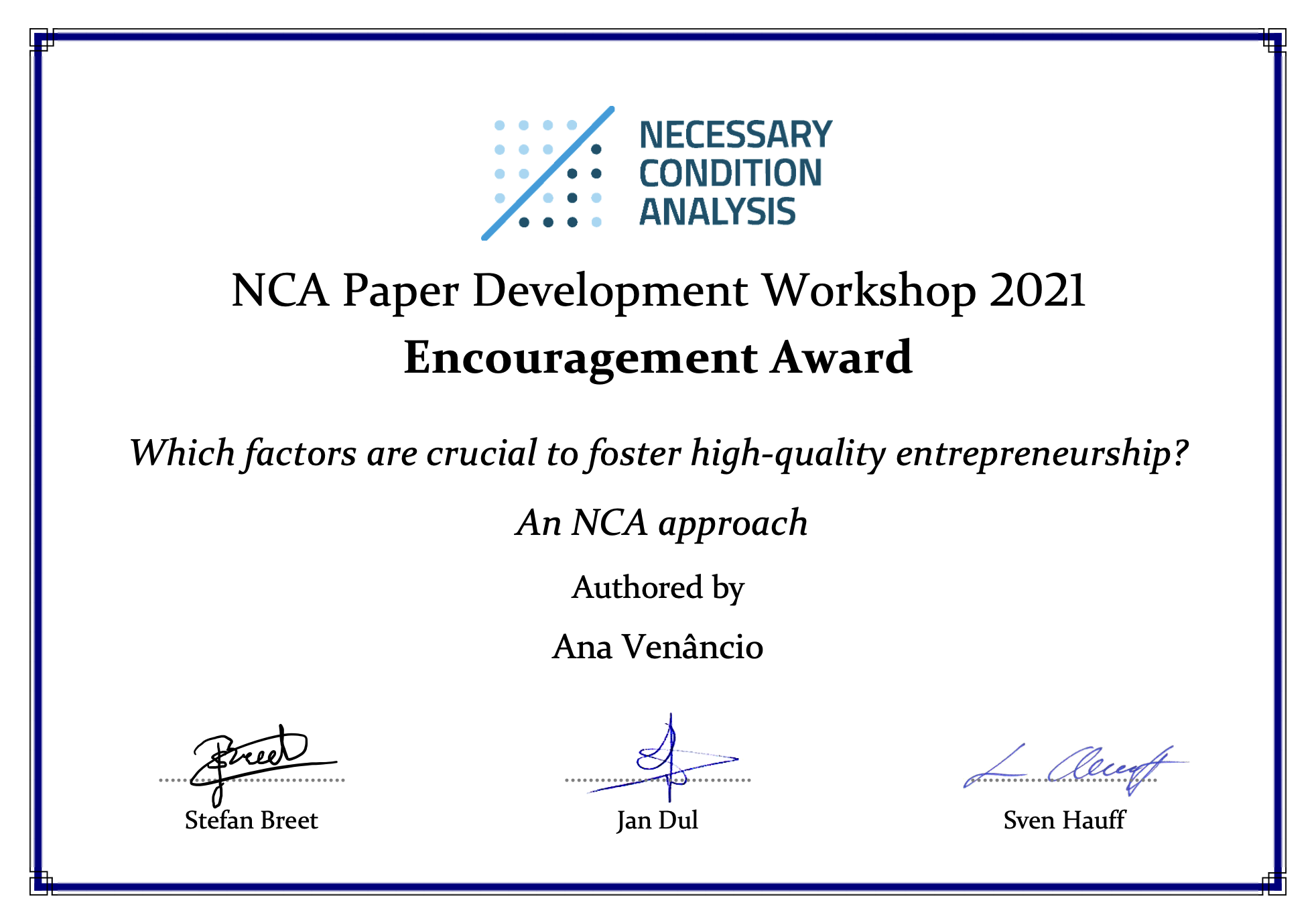The first NCA paper development workshop


Oct 15, 2021
On Thursday, the first Necessary Condition Analysis (NCA) Paper Development Workshop took place. I organized the workshop on behalf of the NCA Development Team to help researchers write convincing papers using the NCA methodology, and I am really happy about how it turned out.
The workshop consisted of three parts. We started with a plenary session in which Professors Steve Gove and Jan Dul gave presentations about the latest developments of Necessary Condition Analysis. After a short break, we formed three groups to discuss the papers of the participants. We ended the workshop with a short plenary session in which we awarded the first NCA Paper Development Workshop Encouragement Award.
Conducting NCA Research
Professor Steve Gove kicked off the plenary session with a presentation about the history, current state, and future opportunities of NCA research. He showed that the method’s popularity has increased over the past eleven years and is slowly but steadily getting more popular. This trend signals the acceptance of the NCA. It is unlikely that reviewers in the high-ranked journals will be suprised when the encounter the method.
He identified three types of opportunities for NCA research:
- Papers that apply NCA. They will be accepted soon by top journals.
- Review papers showing that NCA provides a valuable opportunity to move a specific field forward. The paper by Aguinis, Ramani, and Cascio on methodological practices in international Business research published in 2020 is a good example.
- Methodological papers that further develop NCA or that compare NCA to other (statistical) methods.
After Steve’s presentation, professor Jan Dul talked about recent developments of the NCA methodology. Based on his online book Advances in Necessary Condition Analysis, he discussed the formulation of hypotheses, and the use of longitudinal, panel, and time-series data.
Roundtable Discussions
In this part of the workshop, we split into three groups to discuss the submitted papers. The group discussions were led by Jan Dul, Sven Hauff, and myself.
- Group 1 (Jan Dul): Bin Chen and Thiago Lima
- Group 2 (Stefan Breet): Guillermo Dávila, Leena Lankoski, and Nazli Wasti
- Group 3 (Sven Hauff): Ana Venâncio and Nikolina Dragicevic
Encouragement Award
We concluded the workshop with the announcement of the Encouragement Award winner. The prize is awarded to recognize the potential of early-stage work and to inspire its further development. Although we encourage all participants to further develop their work, there is one person who clearly showed that she masters both the logic and application of NCA.
The winner of the award is Ana Venâncio, who submitted a promising paper that aims to identify the factors necessary for stimulating high-quality entrepreneurship. We are impressed by the completeness of the paper. She does not only apply and interpret NCA in a correct way, but she also properly uses necessity logic to develop her hypotheses. We believe that this paper has the potential to make an important contribution to entrepreneurship theory.

Related Posts

Service Workshops
The Necessary Condition Analysis (NCA) Paper Development Workshop helps scholars write convincing NCA papers.
Service Workshops

Service Workshops
This workshop teaches you how you can use Necessary Condition Analysis (NCA) to identify essential factors for organizational success.

Research Talks
This study investigates the necessary conditions for team creativity, focusing on team size, team network, and team members’ expertise in the context of R&D.